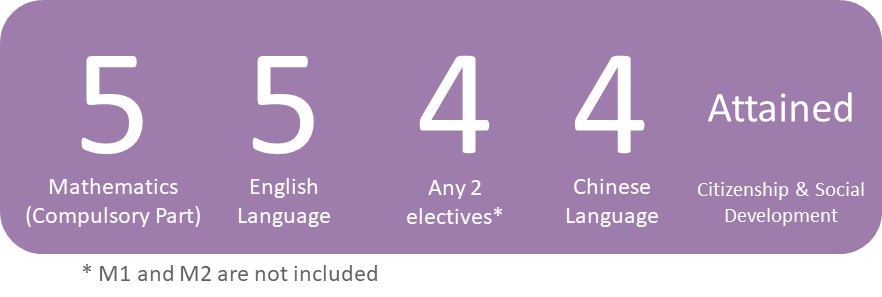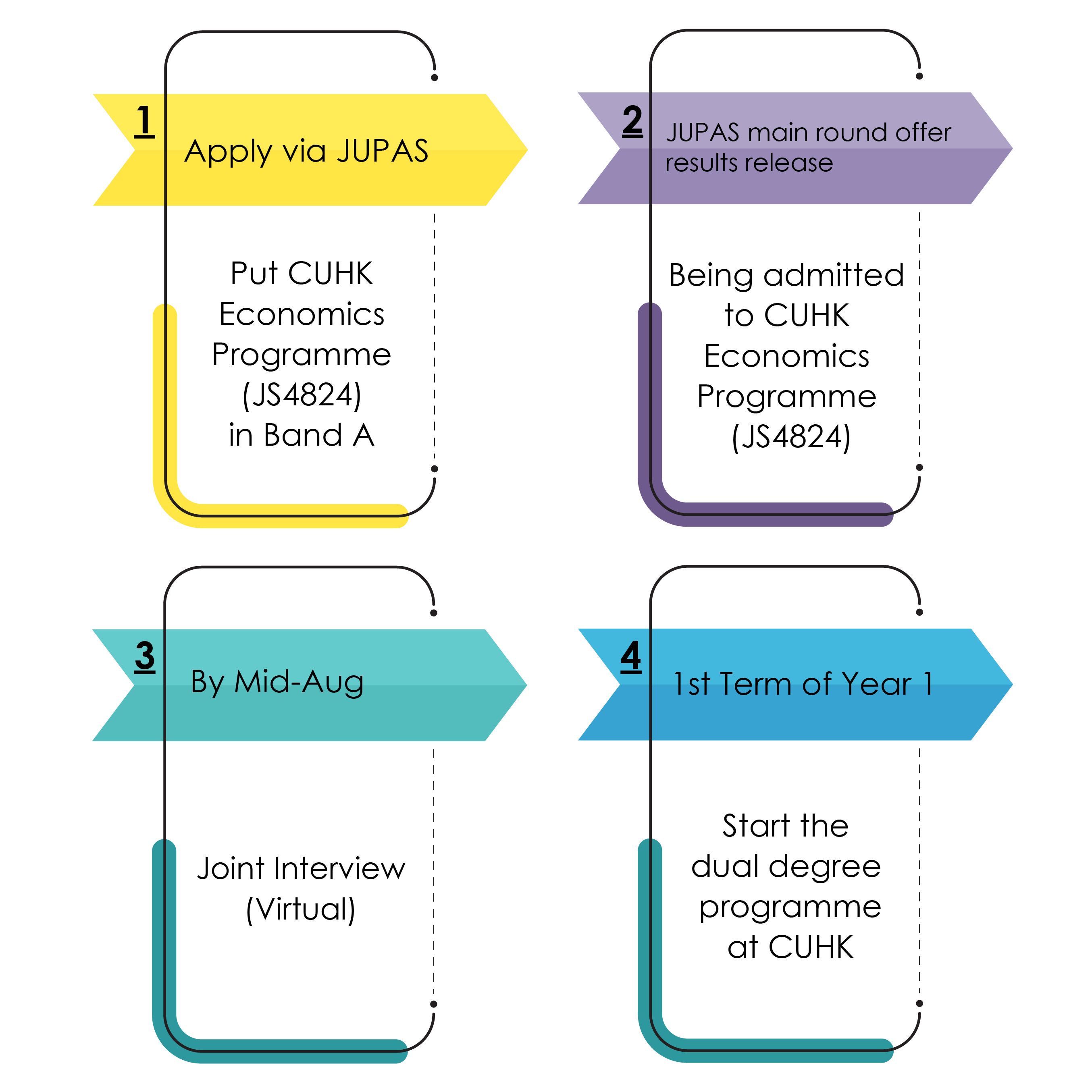Programme Leaflet
Click here to view the programme leaflet.
Minimum Requirements for CUHK-Tsinghua University Dual Undergraduate Degree Programme in Economics

HKDSE Subject Weighting for CUHK Economics Programme (JUPAS code: JS4824)
CUHK Economics Programme (JUPAS code: JS4824) adopts the Best 5 formula, which counts the scores of the best 5 subjects in HKDSE, with subject weighting as below.

CUHK HKDSE Score Conversion for Category A Subjects

Admission Timeline
Click here for details of the JUPAS admission timeline.
Application
Click here for the JUPAS application details.
JUPAS code: JS4824 (Same code as the CUHK Economics Programme)
Note: Applicants must hold a Hong Kong Permanent Identity Card and a Mainland Travel Permit for Hong Kong and Macau Residents (港澳居民來往內地通行證 (回鄉證)).
FAQ for Hong Kong Local JUPAS Applicants
A. Application and Interview
-
1. How to apply?

-
2. Will there be an admission interview? If I am not being invited for interview, does it mean that I will not be admitted?
Yes, we will organize an interview conducted by a joint selection panel of the two universities usually after the release of JUPAS main round offer results.
Only students who meet our minimum requirement will be invited for an interview. Shortlisted candidates usually will be notified of the interview arrangement by phone (+852 3943xxxx) or email (xxxx@cuhk.edu.hk).
Only those who have attended the interview will be considered for admission. -
3. Is the interview conducted in Chinese/English? What is the interview format and what kinds of questions will be covered?
It usually will be an individual interview conducted in English.
We want to know if the applicant is interested in analyzing human behavior and will test the logical thinking of the applicants.
B. Programme Information
-
1. If I have not taken Economics in high school, can I take the Dual Degree Programme? Can I handle it well?
Yes of course, many of our students did not take Economics in high school as well.
In high school, economics teachers will not teach the basic knowledge of mathematics, statistics, etc. But in university, we focus on building a strong foundation in mathematics, statistics, theories and quantitative analysis. So, students can link up all the knowledge they have learnt and study various economics topics thoroughly. -
2. Why is CUHK ECON housed within the Faculty of Social Science?
The application of economics is extremely broad, including many topics of social interests, on top of Business and Finance.
In the US, almost all of the top economics departments are housed in their Faculties of Social Science. Examples include Yale University, Princeton University and University of Chicago, etc. This is because economics is an integral part of Social Science. -
3. What are the differences between CUHK ECON and other Social Science programmes?
The essential parts and knowledge of economics can be linked up together. But for other subjects in social science, they may have different schools of thought and less common ground.
-
4. What are the differences between CUHK ECON and other Business programmes?
Economics could be applied in all different aspects of society. Our programme includes all kinds of topics in the mainstream Economics while the Business Programmes emphasize in knowledge of business/commercial activities. If CUHK ECON were to be housed in the Business School, many non-business topics might not be taught, which would limit students’ access to a comprehensive education in economics.
For example, economics examines how to design an effective taxation system. Professor Sir James Mirrlees, Former Distinguished Professor-at-Large of the CUHK Economics Department, has pointed out that taxpayers would have more private information about themselves than the government, and would change their behaviours according to the prevailing tax system. Analyzing the tax system from the theories of accounting alone may not incorporate the importance of economic concepts such as asymmetric information. Professor Sir James Mirrlees and Professor Peter Diamond coauthored a series of pathbreaking research on the topic of optimal income taxation which had subsequently affected the tax policies of many countries. Such contribution was later mentioned in their award of the Nobel Prize in Economic Sciences!